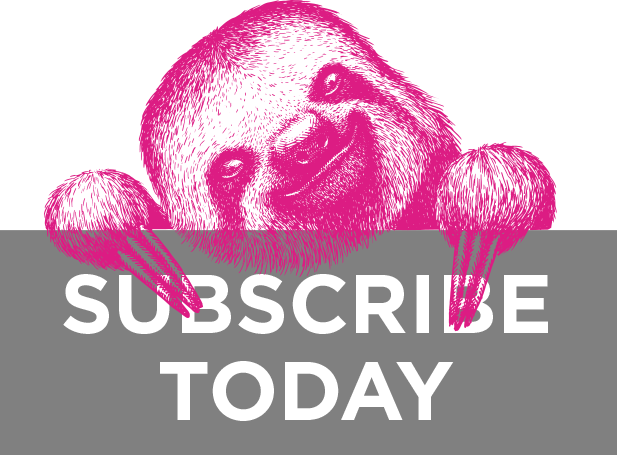People + Performance

A bestselling author, global researcher and thought leader focused on unlocking strengths, increasing performance and pioneering the future of how people work, Marcus Buckingham explains how we should engage employees, whilst discussing the make-up of a team.
Q. How did you get into this line of work? What encouraged you to follow this type of research?
A. My dad and grandfather. My father was personnel director of Allied Breweries. They had 7,000 pubs and he was trying to figure out how to find better pub managers, and as part of that process he found Dr Donald O. Clifton, who was the grandfather of positive psychology, and at the time, the chairman of Gallup Inc. Gallup Inc and Dr Clifton were trying to measure things that you can’t count, for example, how do you measure talent? How do you measure employee attributes? How do you measure employee engagement? How do you measure knowledge and performance? I went over to meet Dr Clifton in Lincoln, Nebraska, and I was immediately hooked. The fact that you could ask someone a question and based on their response you could note some predictable behaviours and/or attributes about them – that was crazy! But I wanted to know more.
Q. Your talk at the World of Business Forum, London, 2019, discussed the nine lies we tell ourselves about work. Could you tell us more?
A. I currently run the ADP Research Institute, which is an institute focusing on studying people and performance at work. We have just done a 19 country study with a reliable measure of engagement, and although it varies country by country, we can see that 15% of people in the world are fully engaged in work while everyone else is transacting. Growth in per person productivity since 1982/83 has barely moved beyond under 1%, and in the UK it isn’t even that. We have spent so much energy over the last few years making sure that people are bringing their best selves to work, spending time and money on technological tools in order to get more per person productivity, but we are failing. Whatever we are doing at work to help people work better isn’t working, according to employees and their output.
15% of people in the world are fully engaged in work while everyone else is transacting
In terms of technology, the tools we have created take our core assumptions and build them into math, because artificial intelligence (AI) and machine learning are driven by algorithms, which are just assumptions turned into math. You optimise an algorithm for a certain outcome but your outcome is determined by your assumptions of people. These core assumptions of people that we are feeding into the technology are wrong. A lot of the stuff we do for/to our employees is designed to create conformity, cohesion to cascaded goals, cohesion to the company culture – it is all designed to remove individuality, no wonder that we disengage people because we can’t actually see the person because they are hidden by the data. We are data disfluent – we don’t know what is and what isn’t reliably measurable about a person.
We are data disfluent – we don’t know what is and what isn’t reliably measurable about a person
Q. How would you suggest that we engage staff?
A. People are one of the most expensive resources that you have, so let’s start with what we know about people at work. To begin with, people always work best in teams. But, what is a team, and how does the work actually happen when in a team? One of the number one reasons why we don’t engage with employees well is because we don’t see their work. We know that people are 2-3x more likely to feel engaged when they work on a team. We also know that people have a better team experience when they deeply trust their team leader. You are 12x more likely to be fully engaged when you are on a team and you trust your team leader. We can’t make people trust others but we can create an environment where trust can occur. Figure out how teams come together and what happens when they do really well. Try and build teams where people complement each other. ’What is a team?’ is a brilliant way to start thinking about healthy, productive work and if you don’t start there then you are starting in an abstract land that doesn’t take into account the real world of work which is essentially team work.
Another point to address is the work/life balance. Work can be stressful and what people try to do is balance it out with life; placing work as bad and life as good. You have got this categorically wrong – work is a part of life and we need to recognise that.
Try and build teams where people complement each other
Q. What would you say is the greatest challenge of being a leader?
A. The most important ritual you should have as a team leader is a frequent check in with your team. If you have six people on your team, talk to them every week for ten minutes, individually, one-on-one, about near term future work, as in, what are your priorities this coming week and how can I help?
Leading is about confidence. Have vividness about yourself, who you are serving and what your strengths are. Do that well and your team’s confidence in you will improve. Employees want certainty about the future so you need to have the confidence to provide that.
ENDS
Marcus Buckingham is a New York Times bestselling author, strengths revolutionist, global researcher, and the Head of the ADP Research Institute People + Performance.
Marcus Buckingham is a global researcher and thought leader focused on unlocking strengths, increasing performance and pioneering the future of how people work.
Building on nearly two decades of experience as a Senior Researcher at Gallup Organization, he currently guides the vision of ADP Research Institute as Head of People + Performance research. He founded The Marcus Buckingham Company in 2006 with a clear mission: to instigate a “strengths revolution.” It started, as all revolutions do, with the simplest of ideas: that when people spend the majority of each day on the job using their greatest talents and engaged in their favourite tasks, basically doing exactly what they want to do, both they and their organizations will win.
In other words, companies that focus on cultivating employees’ strengths rather than simply improving on people’s weaknesses stand to dramatically increase efficiency and productivity while allowing for maximum personal growth.
Learn more about Human-to-Human Marketing



